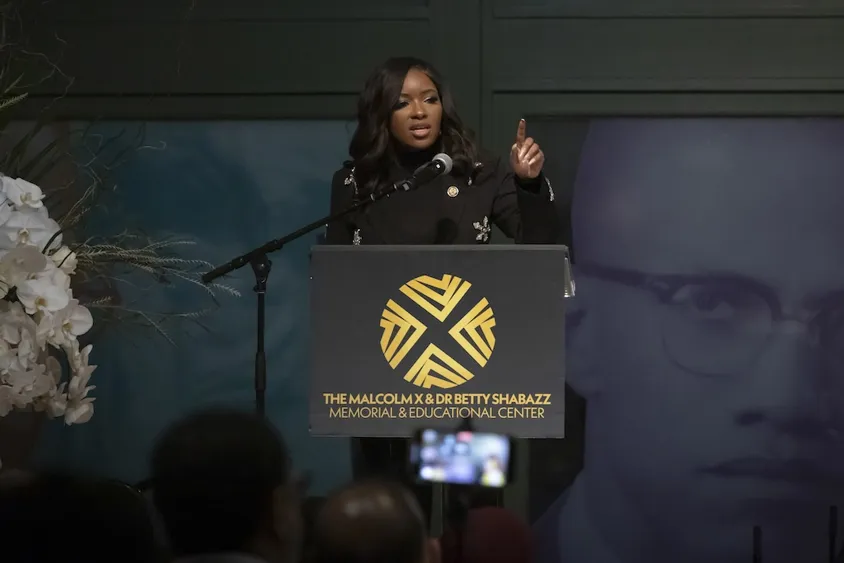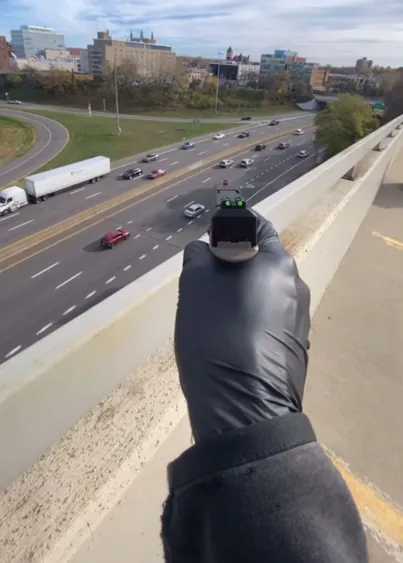Ryan Routh guilty on all courts of trying to assassinate Trump on golf course
Ryan Routh, the man accused of trying to assassinate Donald Trump on Trump's West Palm Beach golf course last year, has been found guilty on all five counts.
Routh, who is representing himself despite lacking any legal education or experience, spent three hours Monday presenting his defense case after prosecutors called more than three dozen witnesses over the last two weeks in the government's case.
Routh called a firearms expert and two of his longtime friends in his defense.
"Is it your personal opinion of me that I am peaceful and gentle, and nonviolent?" Routh asked his second witness, longtime friend Marshall Hinshaw.
"I would say so," Hinshaw said. "I would not expect you to harm anyone, Ryan."

Routh argued that he lacked the capacity to kill Trump, though he appeared to concede some of the prosecution's allegations during the trial. He acknowledged that he authored a letter that prosecutors say outlined his plans to kill Trump.
He was cut off multiple times Monday by U.S. District Judge Aileen Cannon, who ended the day with a warning for Routh ahead of Tuesday's closings.
"Any argument you make ... must be reasonably tied to the admitted evidence. Do you understand?" the judge asked Routh, saying that any deviation will "cause a problem."
"Yes, your honor," Routh said.
"This cannot be your opportunity to provide pseudo testimony outside the context of the sworn testimony," Cannon said.
Each side has been allotted one hour and 45 minutes for their closing arguments.
Deliberations will begin immediately after the closings end, said Cannon, who instructed the jury about the law on Monday afternoon.
"I want to remind you that if the defendant spoke in those parts of the trial, he was acting as a lawyer in the case, and his words are not evidence. The only evidence in this case comes from witnesses who testify under oath on the witness stand and from exhibits that are admitted," Cannon told the jury.
Prosecutors allege that Routh put together a methodical plan -- including purchasing a military-grade weapon, researching Trump's movements, and utilizing a dozen burner phones -- to kill Trump based on political grievances.
Hiding in the bushes of Trump's Palm Beach golf course and armed with a rifle, Routh allegedly came within a few hundred yards of the then-presidential nominee before a Secret Service agent spotted his rifle poking out of the tree line.
Routh allegedly fled the scene but was later arrested by a local sheriff's office on a nearby interstate.
To convict on the top count of attempted assassination of a presidential candidate, jurors might believe beyond a reasonable doubt that Routh intended to kill Trump and took a "substantial step" to carry out his plan, even if he did not follow through or changed his mind.
"Each of you must decide the case for yourself, but only after fully considering the evidence with the other jurors," she told the jury. "Remember that, in a very real way, you are judges -- judges of the facts. Your only interest is to seek the truth from the evidence in the case."
Routh faces five criminal charges, including attempted assassination of a major presidential candidate, using a firearm in furtherance of a crime, assaulting a federal officer, possessing a firearm as a felon, and using a gun with a defaced serial number. He faces up to life in prison if convicted.

